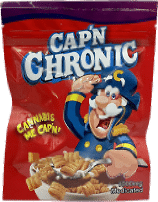Earlier this year, the Food & Drug Administration disclosed that it would not regulate non-pharmaceutical CBD products, thereby putting the onus on Congress to devise an appropriate regulatory framework for cannabidiol and other hemp-derived cannabinoids. Solicited by a formal Congressional Request for Information (RFI) on ideas for how to regulate hemp-derived CBD, public feedback included a diverse range of perspectives from businesses, trade associations, and other stakeholders. But today’s “hemp” market has moved way beyond CBD, as noted by several commentators who expressed concerns about the unregulated proliferation of high-dose THC consumables and novel synthetic intoxicants thanks to loopholes in the 2018 Farm Bill, which is up for revision and renewal in the coming months. What follows are comments recently submitted by Tiffany Devitt, a longtime Project CBD supporter, in response to the Congressional RFI on a potential regulatory pathway for hemp-derived CBD. A leading California cannabis industry policy influencer, Devitt is currently Director of Regulatory Affairs at CannaCraft & March and Ash.
Current Market Dynamics
Loopholes in the 2018 Farm Bill
The 2018 Farm Bill defines “hemp” as “the plant Cannabis sativa L. and any part of that plant, including the seeds thereof and all derivatives, extracts, cannabinoids, isomers, acids, salts, and salts of isomers, whether growing or not, with a delta-9 tetrahydrocannabinol concentration of not more than 0.3 percent on a dry weight basis.”
Within that definition, are two critical phrases: “all derivatives” and “whether growing or not.”
“All derivatives” is currently being misinterpreted to encompass any compound that can theoretically be chemically synthesized from CBD, even wholly novel compounds not found in the plant in commercially meaningful quantities (if at all).“Whether growing or not” is being misconstrued to mean that the 0.3 percent THC limit applies to the plant biomass and the final product, resulting in THC levels in consumer products labeled as “hemp” that substantially exceed THC limits set in state-regulated cannabis markets.Lastly, the omission of THCA, a natural compound that converts to THC when heated, is causing further confusion.Collectively, this language has fostered a regulatory gap that companies are taking advantage of to sell highly intoxicating products, colloquially and misleadingly referred to in the national unregulated hemp marketplace as “legal cannabis.”1
The “Hemp” Market Has Moved Way Past CBD
In the federal discussion about hemp, “hemp” and “CBD” are often conflated. The reality is that the commercial market has largely shifted away from non-intoxicating CBD wellness products to highly intoxicating recreational products. Pseudo-hemp companies with brand names like Fuked Up2 and Clusterf*ck3 make no pretense of selling nutritional supplements. Instead, they market THC-like products that are far stronger than anything found in state-regulated cannabis markets, where the maximum dose of THC per serving is commonly capped at five to 10 milligrams.4 In the unregulated “hemp” market, brands like Chapo Extrax sell products with hundreds of milligrams of synthetic THC per serving.5 The so-called “hemp” market is no longer predominantly a wellness market. It is, in the words of Chapo Extrax, “the newest drug cartel in town.”6











